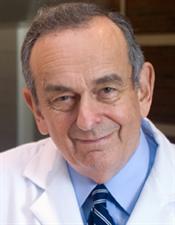$4M NIH Grant Supports UR Research to Prevent Sudden Cardiac Death

Cardiology researchers from the University of Rochester School of Medicine and Dentistry received $4 million grant from the National Institutes of Health to study the genetic mechanisms and preventive therapies for a genetic heart rhythm disorder that can cause sudden cardiac death.
Arthur J. Moss, M.D., the Bradford C. Berk, MD, PhD Distinguished Professor of Medicine and founding director of the Heart Research Follow-up Program, will lead a five-year analysis of the genetic condition called Long QT Syndrome, type 3. The research focuses on identifying the basic cellular mechanisms involved in the disorder and any overlap with common heart rhythm disorders that can occur and cause heart attacks. The research includes scientists from University of Rochester School of Medicine and Dentistry and Columbia University New York Presbyterian Hospital.
“What sets this study apart from other research is our emphasis on understanding the fundamental mechanisms that will have broad applicability across the spectrum of genetic and acquired heart rhythm disorders,” said Moss.

In 1979, Moss launched an international registry for families with the Long QT Syndrome, one of the first registries for any inherited disease in the world. By following generations of patients with this disorder, scientists around the world have used the registry to track down more than 500 genetic mutations involving 10 genes that cause various versions of this syndrome.
As a result, Moss and colleagues have been able to identify patients at risk for the life-threatening heart rhythm disorder and have developed effective treatments. Their work has contributed to an 80 percent reduction in life-threatening events for patients with this disorder.


